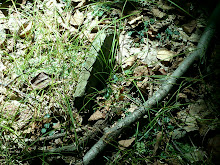Phebe shared with Percy at some point recently that I’m writing a book based on her namesake, Phebe Reynolds. Percy was against the idea of taking liberties with her life story. He said at the very least I should provide some non-fiction historical account of Phebe Reynolds to go along with the fiction so people can see the difference. So he emailed me the chapter Philip H. Smith wrote in Legends of the Shawangunk. I figure I might as well add it in to this mess. Here it is:
Man is largely a creature of circumstances. Whatever may be his natural endowments we cannot shut our eyes to the fact that his character is moulded by his surroundings. The girl that has been reared in luxury and ease, the subject of assiduous care as though she were a tender and volatile plant, will acquire a softness and effeminacy that will lead her to lose self-control upon the slightest occasion. Her less-favored sister, born with like endowments, but who has been brought up amid the hardships and dangers of frontier life, when her fortitude is put to the test, will be found capable of performing acts of heroism that will put many of the lords of creation to shame. Among all the heroines of the border, whose deeds of hardihood and self-denial have been put on record, there will be found not one excelling in the sublimer virtues the subject of this sketch.
Phebe Reynolds was the daughter of Henry Reynolds, and one of a large family of children. They were residing, at the time of the Revolution, in a log cabin in the present town of Monroe, within the region of country infested by the notorious Claudius Smith band of outlaws. One night the gang surrounded Reynolds' cabin with purpose to effect an entrance, but found the windows and doors securely barred and bolted. They next mounted the roof, and two or three essayed to drop down the wide-mouthed chimney; one of the family poured the contents of a feather-bed upon the fire, and the robbers were forced to beat a retreat to escape suffocation.
Some time afterward a second attempt was made with a different result. Benjamin Kelley and Philip Roblin, both of whom were near neighbors of Reynolds, together with several others, went to Reynolds' house one dark night, and knocked for admission, representing themselves to be a detachment of the American army in search of deserters. After hurriedly dressing himself Reynolds opened the door, and then went to the fireplace to procure a light. While his back was turned to his visitors one of them struck him with the fiat side of his sword, and told him to make haste. This at once revealed the character of his guests. He made a rush for the door, but just outside stumbled over a log, and fell headlong. Ere he could recover himself the gang were upon him, and he was dragged back into the house.
When the struggle began, Reynolds called loudly for his son, then a mere lad, to come to his assistance. When the boy came into the room, one of the men seized him, set him down upon the floor, and told him if he moved even so much as to turn his head right or left, he would cut it off. This so terrified the boy that he sat as motionless as if he had been carved in stone. Mrs. Reynolds, accompanied by some of the other children, now came into the apartment; when she saw her husband in the hands of ruffians, she fell upon the floor in convulsions; and it is believed she remained unconscious through most of the ensuing strife.
After binding Reynolds, and wounding him with their knives and swords, they, in the presence of his family, proceeded to hang him on the trammel-pole of his fire-place. Having accomplished this, the members of the gang dispersed through the several rooms and commenced plundering, leaving him, as they supposed, in the throes of death.
At this time Phebe Reynolds was twelve years old, but large and robust for one of her age. She had become inured to the dangers and terrors of border life, and was resolute and fearless, particularly when her blood was up. Taking advantage of their temporary absence, Phebe caught up a knife and hastily cut the rope by which her father was suspended. She also threw the noose from his neck and managed to get him upon a bed.
It was not long before the ruffians discovered what had been done, and again they gathered in the room to murder Reynolds. The girl boldly confronted them with her knife, like a lioness at bay. They commanded her to go away, threatening her with instant death if she refused. She declared she did not wish to live if they murdered her father. They then menaced her with swords and knives; still she stood her ground courageously. Finding them determined to murder her father, she sprang upon the bed, clasped her hands tightly around him, and attempted thus to shield him from their bloody instruments. One of the men then took the rope and cruelly beat the girl; but she did not even moan, or wince, although she was marked from head to foot with broad, angry stripes.
Finding this to be of no avail, the marauders forcibly tore her away, and once more Mr. Reynolds was left hanging to the trammel-pole, while they resumed their work of plundering the house.
Again did the heroic daughter cut the rope, and was leading her father to another room, when his strength gave out, and he sank upon the floor. Again did the wretches discover what had been done, and they attacked him with their knives and swords as he lay upon the floor, and once more the brave daughter threw herself upon him, and endeavored to protect him; receiving on her own person many of the blows that were intended for him. In short, her clothing was saturated with the blood flowing from numerous cuts in her forehead and breast. Finally the robbers threw Mr. Reynolds into an old chest, and, shutting down the lid, they left the place, first destroying his private papers and setting fire to the house. They also rolled a large stone against the door, which opened outward, and told them they would shoot the first one that dared to raise the latch, with the design that the whole family should be burned up with the house.
Phebe now made her way to the chest, and, raising the lid, found her father, stiff and rigid, and apparently dead. With such help as her mother and the lad could give, the body of her father was lifted from the chest, and while this was being done, a low moan escaped his lips. She immediately pried open his teeth with a pewter spoon, and gave him a few drops of water. This seemed to revive him, and she gave him more while she proceeded to staunch the blood that was flowing from his wounds.
While thus occupied her mother was moaning and wandering aimlessly from room to room, and presently she noticed that a bed, a hogshead of flax, and some other inflammable material were on fire. The mother, appalled at this discovery, cried out, “Oh, Phebe, the house is on fire in three places!” “Why don't you put it out?” demanded the daughter. “Oh, I can't,” was the dismayed reply, “if it burns down over our heads!” “Then come and take care of father and let me do it.” The brave girl promptly dashed water on the burning beds, threw a drenched rug over the flax, and went back to her father.
While engaged in dressing his wounds, she told the lad to go out and alarm the neighborhood; but the boy did not dare to leave the house. She then, after doing all she could for the safety and comfort of her father, set out upon the errand herself. Although her person was covered with cuts and wounds, her clothing saturated with her own blood, and she had passed through a scene of terror such as few could have had the fortitude to face, yet she was so cool and collected that she noticed the crowing of cocks in the neighborhood as she passed along the road, and knew that morning was near.
The alarm spread from house to house. A body of men immediately assembled, and shortly after sunrise started in pursuit of the ruffians. The latter were followed into their retreat in the mountains with such energy that they were taken by surprise and four or five of them were killed. One of the killed was Kelley, the leader of the gang, who resided within a mile of Reynolds's house, and had passed for a Whig. He was shot by a young named June, who knew Kelley personally. It appears that June had been informed the robbers were at a certain place playing cards. When he approached their hiding place they heard him coming, and rose to their feet. As they did so, he fired into their midst; the shot mortally wounded Kelley, whose body was afterward found at a sulphur spring to which he had wandered and died. The remains were partially covered up with leaves and brush, and near by was the wedding suit of Henry Reynolds, tied up with a bark string. This suit Mr. Reynolds had preserved over fourteen years; yet he expressed a wish never to wear or see the clothes again since they had been on the back of a Tory. Only two of the ruffians escaped, and they were afterwards arrested in New Jersey. Reynolds would not consent to appear against them, probably on account of his Quaker principles.
While some of the neighbors were pursuing the marauders, others, including the physicians of the town, were attending to the injuries of the family. Reynolds, it was found, had been cut and stabbed in more than thirty places. An ear had been so nearly severed that it hung down on his shoulder. It was replaced as well as circumstances would admit, but the wound healed in such a way as to disfigure him for life. One of his hands was cut so badly that he never afterwards fully recovered its use.
For weeks Reynolds was on the brink of the grave; but he possessed a strong constitution, fortified by a life of temperance and regular habits, and he was once more restored to health. His wounds so completely covered his person that, as he lay bandaged, he more resembled an Egyptian mummy than anything else. His neighbors were very kind to him; they cut his wheat, gathered his hay, and even provided for his family.
When the physicians turned their attention to Phebe, it was found that the wounds on her forehead and breast were of a serious nature, and that her body and limbs were badly bruised and lacerated. Whenever she came within her father's sight, her bruised and bandaged appearance so affected him, that the physicians directed that she should not be allowed to come in his room; and instead of exacting fees for their attendance, the physicians filled Phebe's hands with coin.
Soon after this event Henry Reynolds removed to Sullivan county, where he lived to a good old age, greatly respected by all who knew him. There are people still living in Fallsburg and Neversink who have heard the facts related by Henry Reynolds himself as he exhibited his scars. Phebe became the wife of Jeremiah Drake, of Neversink Flats, and died in November, 1853; her remains repose in the little burial-ground, near those of her husband. Her posterity are among the most highly honored residents of the Neversink valley. One hundred years after the marriage of Henry Reynolds, says Quinlan, it is estimated that his descendants numbered upwards of one thousand.
---Philip H. Smith, 1887
Monday, December 26, 2011
Subscribe to:
Post Comments (Atom)




























No comments:
Post a Comment